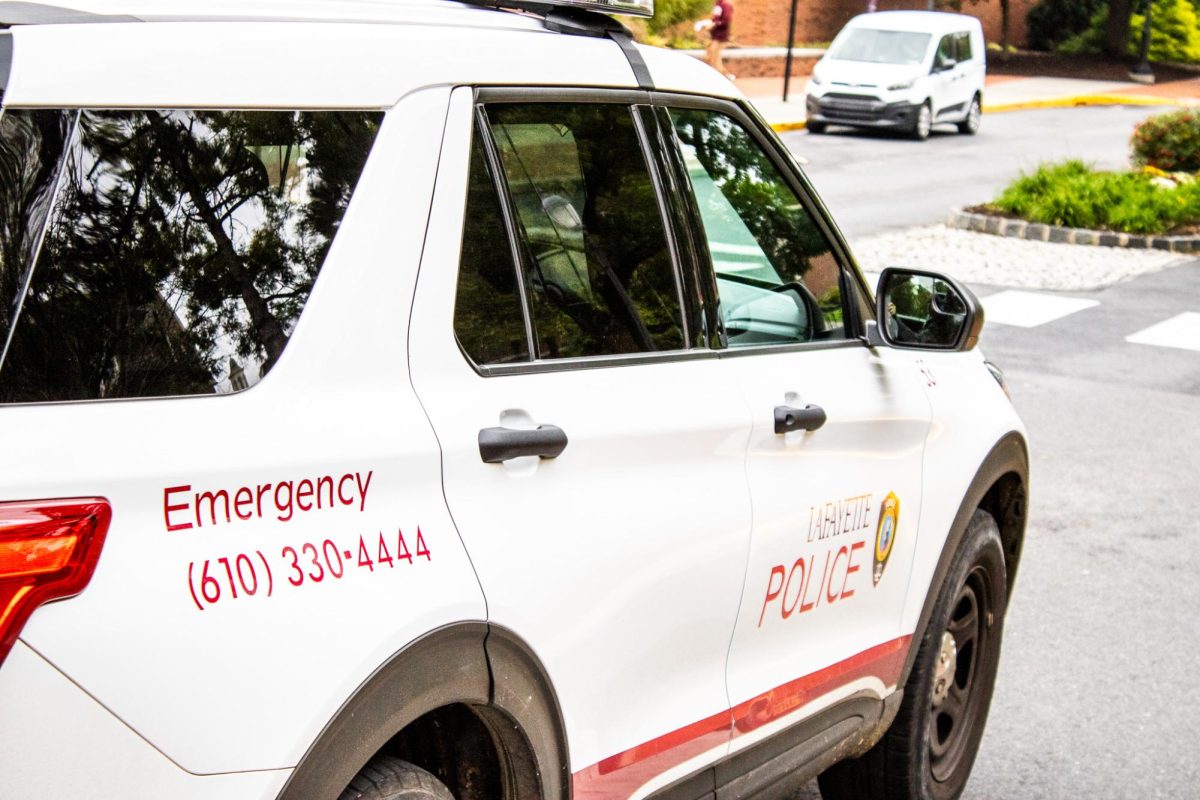Lafayette College Public Safety offers a broad range of services to students, faculty and Easton residents in addition to law enforcement duties. The Lafayette has compiled a list of what Public Safety does and what its officers are allowed to do.
Parking tickets
Parking has frequently been the source of student complaints at the college. Public Safety has recently created a brand new system, clearing up confusion and hoping to make parking rules more transparent.
All employees and staff must register their vehicles, and they get priority over the students. As some faculty members may stay after hours and run their office hours, it is critical that students never take an employee-authorized parking spot, according to the director of Public Safety Jeff Troxell.
“Students should not park in a dedicated staff parking lot. This is 24/7,” Troxell said. “When in doubt, park on one of the decks and give us a call. We can send an officer to see what the issue is.”
This helps avoid parking citations and climbing fines for students.
Technology has sped up the ticket process, as Public Safety has access to license plates and violations.
“Our RV enforcement officer may take a picture of the vehicle and the violation,” Troxell said. “You then have five days to appeal. We simply want students to park where they’re assigned.”
In order to get registered for parking on campus, students must apply for a permit and become registered with Public Safety.
Ride escorts
PSAFE’s ride system is split into two sections, safety escorts and medical transports. There is a distinct difference between the two.
“In the evening hours, if a Lafayette community member doesn’t feel safe, you can call Public Safety after hours and we will send an officer,” Troxell said. “They will do a walking escort from one college building to another.”
This should be permitted in all scenarios as long as the Lafayette community member calls Public Safety and explains their concerns. In an emergency situation, students are advised to call the Public Safety emergency line or 911.
On the other hand, medical transport vans assist students in two ways: injury services and transportation to medical facilities for illness. Lafayette Public Safety operates in a ten-mile radius, driving students within that range for any Bailey Health Center registered appointments, physical therapy or any other medical needs. For an injury potentially caused by athletics, students must be vetted through sports medicine or the Bailey Health Center.
“You have to have a legitimate injury,” Troxell said. “The health center will contact us and we will add your name based on their evaluation of the individual.”
Medical transport van drivers are typically students working part-time. In rare scenarios, Public Safety is not able to drive someone to a given location depending on the seriousness of the situation.
“Sometimes we may have to say no to an individual based on availability,” Troxell said. “But, if an officer is available and the medical van can’t do the transport, we will do the campus transport from a college home building to another building. Our primary purpose for Public Safety is to patrol campus. It’s not to transport students where they want to go.”
Entering buildings
In the event of a potential disciplinary violation or complaint, Public Safety frequently enters college-owned spaces.
“We go to the area that was called in and we will knock and talk,” Troxell said.
If something violating college law is present, such as marijuana or alcohol in the presence of underage students, Public Safety will confiscate items. Yet, officers are required to ask for permission in every “knock and talk” situation.
“If they say no, we make contact with one of the deans, and we discuss what we have factually at the time. The deans will either grant permission or ask us not to go in,” Troxell said. “We just want to make sure students are safe and everything is okay.”
Based on the Fourth Amendment, all searches and seizures from Public Safety must be reasonable and fair.
Residence advisors are also trained to take part in these “knock and talk” situations, as Public Safety runs many training sessions prior to the academic year.
“Alcohol, fire safety [and] drug-related calls are all part of the programs that we perform. Whatever [training] we offer on our website, we provide that training to the campus community,” Troxell added.
PSAFE and Police Rights
Public Safety has the same boundaries and restraints as police officers, as stated in local, state and national law. Despite being specifically tied to a college campus, Public Safety is commissioned just like any other police office in their jurisdiction. Public Safety officers do not carry guns.
“Whatever police powers [other officers] have, we have that here as well,” Troxell said.
This means Public Safety is unauthorized to use excessive force during an encounter, commit assault or battery or tamper with evidence. Many other similar violations are rules sealed in federal law.
In some of these serious scenarios, Public Safety will typically get support from Easton Police, or contact the state police.
Overall, Public Safety’s main goal is to support the students and create a safe environment, and not to appear patronizing.
“We are here for students and the community,” Troxell said.
Jenny Davis ‘26 contributed reporting.




































































































